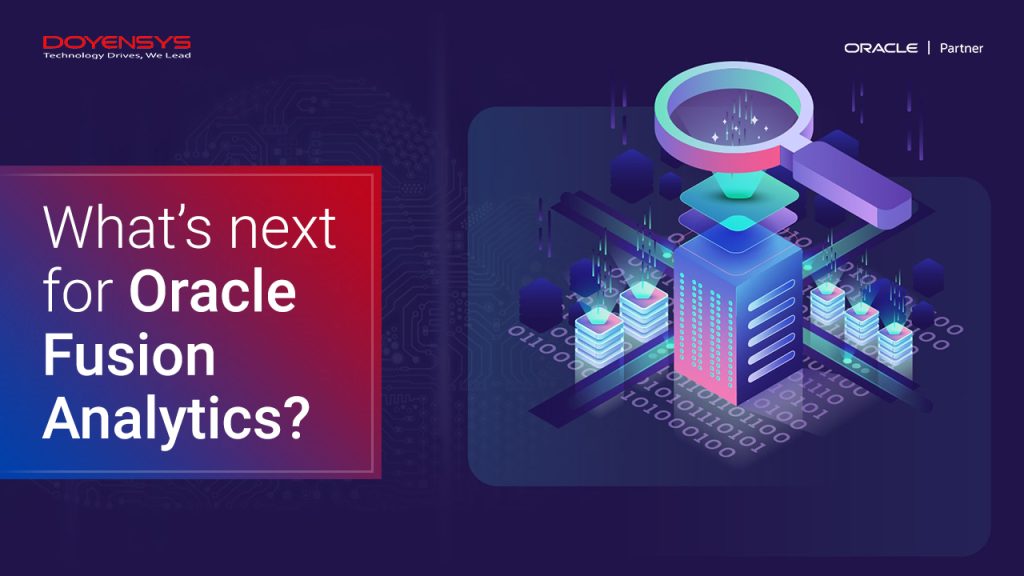Today’s companies rely heavily on data and statistics because they help with strategic decision-making. In addition, customers in the healthcare, retail, educational institutions, manufacturing, and other sectors that collect more useful data receive additional value from analytics solutions and use cases.
 Utilizing the various types of analytics at their disposal, businesses from various sectors can learn how goods are used, why certain outcomes occur, and even how to predict the future and gain insights into how to change future outcomes, fundamentally altering how businesses run. Today, it is possible to incorporate analytics dashboards in apps using some self-service business intelligence platforms, making it simpler for users to evaluate data.
Utilizing the various types of analytics at their disposal, businesses from various sectors can learn how goods are used, why certain outcomes occur, and even how to predict the future and gain insights into how to change future outcomes, fundamentally altering how businesses run. Today, it is possible to incorporate analytics dashboards in apps using some self-service business intelligence platforms, making it simpler for users to evaluate data.
Business users need to remember a few important goals when researching analytics solutions. First, fusion Analytics is made to be simple to use. It’s an easy tool designed for the end user attempting to handle and apply data already passed through the data flow.
For Oracle Fusion Cloud Applications for HCM, ERP, CX & SCM, it is a cloud-native analytics tool that offers business customers prebuilt insights to enhance decision-making. In addition, it allows KPI (key performance indicator) alignment throughout the company, enabling various business functions to collaborate on common business goals.
So, what’s next in Oracle Fusion Analytics in 2023? Let’s take a look.
What novelties will Oracle bring to the analytics market?
Oracle’s success is based on its commitment to satisfying its customers. Therefore, Oracle Fusion Analytics has stressed the following important value propositions:
1. Drive faster time-to-value:
Data is available to all companies in various areas, including revenue, operations, human resources, customers, supply chains, etc. But gathering, combining, and aggregating the data to make analytics-driven choices takes effort.
By making Fusion Applications data easily accessible as prebuilt data within an analytics solution, Fusion Analytics will handle this fundamental yet inherent customer need, eliminating the laborious & time-bound Extract Transform Load (ETL) model and accelerating the process.
2. Leverage the extensibility framework to include data sources:
Fusion Analytics can combine any type of data using the preferred data integration tool because it is extensible at all levels of the hierarchy. Fusion Analytics additionally offers tools for extending its semantic model, expanding the prebuilt dimensions and facts, building structures & utilizing completely new topic areas based on data from other sources combined with Fusion apps data.
3. Connect all businesses:
When leaders of finance, human resources, sales operations, and other departments are increasingly held responsible for a common set of KPIs, businesses can only afford to function as a siloed organization. Analytics that span departments can assist with these objectives.
Analyses of the environment, society, and governance (ESG) are prime illustrations. Finance, supply chain, human resources & other exterior sources must provide data for ESG analytics to be enabled. It also explains why the extensibility structure of Fusion Analytics makes for such a strong basis for implementing ESG Analytics.
Oracle Fusion Analytics roadmap for fusion applications:
Oracle’s ongoing mission is to easily integrate Fusion Analytics, which powers insights across financial, human resources, supply chain, sales, and support, into the Fusion Applications user experience. In reality, it is the objective to integrate Fusion Analytics into Fusion Applications.
Oracle Fusion ERP Analytics
Users can find and evaluate important income, sales, and expense factors using Fusion ERP Analytics. Key points on the approach include:
- Configurable account analysis: With user-defined account analysis templates, configurable account analysis enables users to comprehend account balances at the summary level and dig into sub-ledger activities.
- Accounting Hub: Based on information from the customer-defined sub-ledgers in Accounting Hub, Fusion Analytics can be used by Accounting Hub users to comprehend financial and business patterns.
- Connector for EPM data: This allows users to import EPM data, such as budgets, projections, and actuals, to perform variance analysis for associated use cases.
- Project Analytics: The focus is now on project financing and profits, followed by bills and support for project performance and funds, after important features about project expenses and commitment, project budgets, and projections.
Oracle Fusion HCM Analytics
HR and People leaders can use workforce data from Fusion HCM Analytics to recruit, keep, and develop people successfully. Companies worldwide can handle their personnel assets thanks to its comprehensive coverage of workforce diversity, turnover, retention, talent procurement, salary, wages, learning, absenteeism, and more.
It is particularly true in these crucial times. Recent releases include –
- Expanded work experience knowledge is made possible by insights on journeys and learnings. Payroll analytics, including actuals, variance patterns, and drill-through capabilities, also gives businesses new ways to manage labor expenditures.
- ML algorithms match talent profiles to pair employee abilities with positions. As a result, managers can encourage internal mobility and generate professional development chances necessary to control attrition by having a better knowledge of the talent match gap within the company.
- Thanks to security enhancements, users can perform security checks and set security based on AOR data from the HCM Cloud.
Oracle Fusion SCM Analytics
Fusion SCM Analytics offers ready-to-use KPIs for reducing inefficiencies and disruptions in supply chain processes while assuring client happiness. Roadmap priority categories include:
- Data from production work orders will be used in work order analytics to provide insightful information.
- We can gain insights into product pricing by using information about component costs and cost accounting distribution.
- Connectivity to Oracle Transportation Management and supply chain planning to bring in data and use Data Augmentation to create analytics use cases.
- Important inventory on Hand receipts and balances improvements have been made to increase inventory access throughout the value chain.
Oracle Fusion CX Analytics
The latest addition to the Fusion Analytics product line is Fusion CX Analytics. The initial emphasis is on offering a revenue intelligence system that combines data from the front, middle, and back offices to give insights into revenue-generating activities. Key points on the agenda include:
- Support for account-based marketing with information on the efficiency of marketing tracking.
- Support for analytics for subscription administration, with plans to incorporate money information from ERP Cloud.
- Analysis of the client lifecycle and other analytics for B2B service administration.
- Assistance with estimates, bonus comp information, and cost optimization.
The bottom line:
Fusion Analytics aims to make things simple for consumers after the data pipeline so they can utilize the incoming data. It minimizes the age-old conflict between IT, who supervises the data pipeline and creates periodic reports on that data from those systems, and the end users who need to take action on that data. It is the latest, top-of-the-class project to manage business data based on your Oracle Fusion Cloud application.
For businesses, Oracle Fusion Analytics offers enormous benefits in the SaaS &PaaS worlds: SaaS, where users can begin excavating Fusion apps data despite having little to no development work; PaaS, where users can take full advantage of Oracle’s platform services to elaborate & modify services to attain unique customer needs.
Organizations can ensure everyone has access to the insights they need to understand patterns, manage variances, and make accurate business forecasts by implementing a cross-departmental analytics strategy with Fusion Analytics.
As a result, management can make quick choices grounded in a thorough knowledge of the organization’s processes. Want to learn more about how Oracle Fusion Analytics can accelerate your business processes? Get in touch with your trusted Oracle platforms partner, Doyensys.

